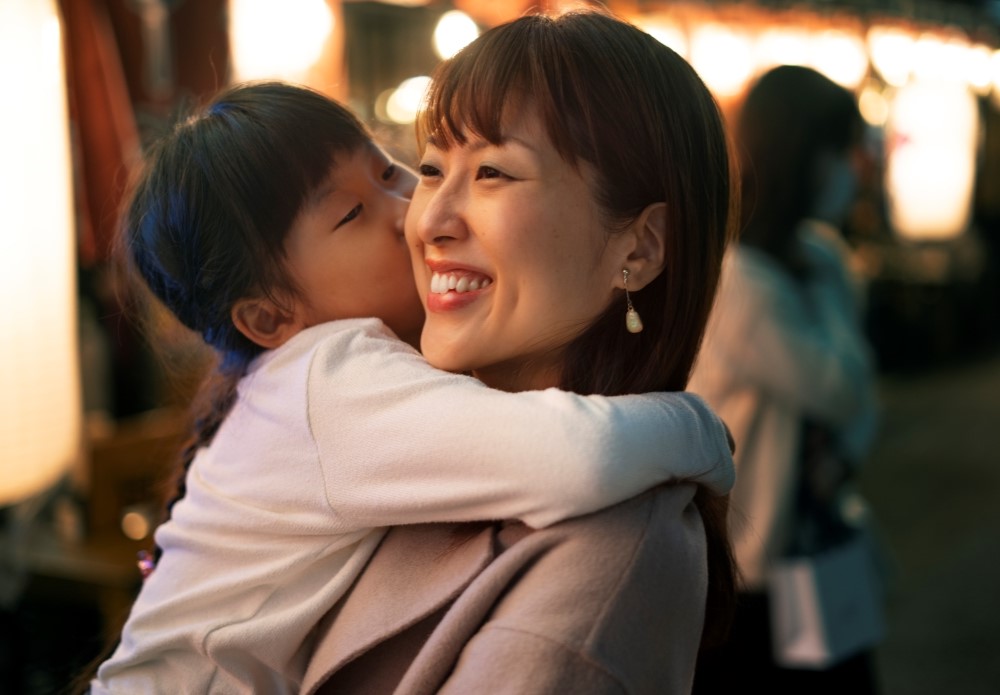Ever felt the urge to hit your child who’s screaming loud enough to permanently damage your hearing? You’re not alone – I feel it on a regular basis. However, physically disciplining our children might not be the answer. Recently, I attended a physical discipline dialogue session organised by the Singapore Children’s Society. They shared interesting findings from a study they did, and how physical discipline had a lasting impact on young adults.
Background of the Study

In 2020, Professor Ho Lai Yun, the Chairman of the Research and Advocacy Standing Committee, and Vice-Chairman of the Singapore Children’s Society wrote a commentary. In it, he suggested moving away from caning to discipline, and instead trying positive reinforcement for good behaviour, or setting clear expectations. When they’re throwing tantrums, he advised parents to look for the “different reasons underlying children’s behaviour.” For example, they might be trying to get attention, avoiding something painful or they might be motivated by feelings of unfairness. He elaborated, “Children need to be taught how to manage their feelings and impulses, how to communicate to resolve conflicts, and what to do when an action is unsafe to themselves or others.”
Reactions to the Study
Many comments on this cited their own experiences and turning out well thanks to physical discipline. For example, Lawrance Wee remembered “being humiliated in class by my primary 6 teacher” and getting a good beating from his dad for “not drawing margin and writing dates on my notebook.” He grew up with a degree and a good job, and personally felt that these punishments helped him achieve what he did. He stressed, “Punishment is necessary but not excessive and abusive.”
Parental Disciplinary Practices in Singapore
Due to the comments, Singapore Children’s Society, together with Yale-NUS College, began a research project in 2021 comprising two mixed-methods studies. These focused on parental disciplinary practices, paying special attention to the use of physical discipline. 747 parents and 667 young adults participated in a survey, while 20 parents and 25 young adults did a series of interviews.
Physical Discipline
The findings revealed that parents used a mix of non-physical, psychological and physical discipline. In particular, physical discipline includes disciplinary actions where the child experiences pain without visible injuries used to correct a child’s behaviour. Of the respondents, 44.8 per cent of them used physical discipline once or twice or more. Almost 30 per cent of the parents also used physical discipline frequently in the past year.
Of the age groups, infants and preschool age-children received the most physical discipline (31.3 per cent and 40.6 per cent) respectively. The exception to this were special needs children. At the dialogue session, the educators and social workers revealed that parents of these children avoided using physical discipline.
Other Methods of Discipline
The majority of parents chose to discipline their children with non-physical discipline (99 per cent used this regularly). This discipline method is what Professor Ho mentioned earlier – positive reinforcement, or setting clear expectations. It can also reasoning and offering children other alternatives. Meanwhile, 71.8 per cent of parents also frequently used psychological discipline, including shaming, love withdrawal, shouting or screaming or insulting their children.
Effects of Physical Discipline on Young Adults
Up to 70 per cent of adults and young adults felt that physical discipline was mostly or never effective. The majority (72 per cent to 83 per cent) of adults and young adults also felt it was both unacceptable and not a necessity.
For young adults who had been on the receiving end of physical discipline, they expressed intensely negative feelings. Not only did they only learn what they could or could not get away with, their younger selves had felt fear and pain while being physically disciplined. As young adults now, some had to seek therapy, while others had a strained relationship with their parents.
A Christian Perspective on Spare the Rod, Spoil the Child
As a Christian, the idea of physical discipline is not new. Chastening or disciplining our children is essential for them to grow well. For example, Proverbs 23:13, KJV, says, “Withhold not correction from the child: For if thou beatest him with the rod, he shall not die.” The verse suggests that appropriate, restrained physical discipline can benefit the child’s well-being and upbringing.
Of course, the writers at GotQuestions.org do advise lovingly administering discipline, whether physical or not.he Bible also entreats children to “hear the instruction of thy father, and forsake not the law of thy mother”, Proverbs 1:8, KJV. My personal take on this is to focus on correcting the behaviour to help your child be morally upright, rather than focusing on the method of discipline. If non-physical methods can stop the behaviour, there may not be a need to use physical discipline for cases where the child is lying or has hurt others.
Positive or Respectful Parenting
A common worry that the commenters expressed was bringing up a strawberry generation of children. These children are less likely to work hard, or withstand social pressure as they have been overprotected by their parents. Hence, the commenters felt the need for physical discipline to prevent this from occurring. While I certainly don’t think children should be able to get away with anything, I also believe that something like respectful parenting could work better. Here, you take the very important step of acknowledging your child’s feelings, while also holding firm boundaries. Then, you work together on solutions for the problem – this teaches your child how to manage her emotions, and look for solutions.
Ways to Better Handle Tantrums
Rephrase Communication and Give Choices
Instantly eliminate power struggles with your children. Rather than telling your child, “It’s time to shower, okay?”, simply state the activity and give them age-appropriate choices. Let them choose what they’re going to wear, or the bath toys they’d like to play with.
Eliminating Power Struggles: Try this free parenting guide by Kelly Tay, founder of Juicy Parenting.
In a similar vein, focus on telling them what they can do. Avoid forbidding them from throwing their food, and tell them that food is for eating or staying on the plate. You may have to hold the boundary after another attempt – take her plate of food away. (Don’t worry, you can still give her milk later – she won’t go to bed hungry.)
Give Specific Praise
Another effective way is to praise them for their good behaviour per the Everyday Parenting Course at Yale. You’ll want to go down to your child’s level, maintain eye contact and praise her for the specific action. For instance, you might say, “I saw you kept all your toys! That was very helpful of you!” Next, follow this with touching your child, like a hug or a pat on the head. Focus on positive reinforcement for as many good behaviours as you can identify.
Set Clear Expectations
One way I get my toddler to work with me is to use a timer. I set a timer, and tell him we can go get strawberries once the alarm sounds. Most times it works, because it sets clear expectations, and he knows what to look forward to. Sometimes there’s resistance on the way back home, and on those occasions I’ll carry him, kicking and screaming until he calms down and we reach home.
Managing Emotions

Parents and Caregivers
When facing a screaming toddler, you’ll find your best intentions can quickly dissipate, and you start considering physical discipline. The results of the above study reported that parents naturally found it difficult to manage their emotions in situations that led to children needing physical discipline. When this happens, take several deep breaths or retreat to another room to cool down before disciplining your child. On a regular basis, take time to exercise, rest, practice self-care, and try to carve out some me-time for yourself. Besides lowering your stress levels, it can help you better regulate your children’s and your emotions when they’re having a difficult time.
Understanding Toddlers and Preschoolers' Emotional Development
At two and three years old, children begin to broaden their vocabulary and experience more independence. At the same time, they will also learn how to express their emotions, whether through drawing or throwing tantrums. These tantrums are very normal, and part of your child’s development. Harvard Center’s Children’s Emotional Development is Built into the Architecture of Their Brains paper describes the complex emotional states of toddlers and preschoolers. It explains, “They depend on their emerging capacities to interpret their own personal experiences and understand what others are doing and thinking”.
Relying on these capacities, they learn to interpret the nuances of how others respond to them. Then, as their brains build on these earlier established foundations, they can mature and better understand a range of emotions. This helps them better manage their feelings. At the end of the preschool years, children who have built a strong emotional foundation can anticipate, use and talk about their own and others’ feelings. They can also better manage everyday social interactions.
Resolving Conflicts
When resolving conflicts such as your child pushed another, authors Joanna Faber and Julie King of How to Talk So Little Kids Will Listen do not recommend commanding, threatening and shaming your child. Instead, you can react strongly, saying, ““HEY! I don’t like to see people being pushed!” Explain to your child that her friend is now upset because they were pushed. Suggest two ways your child can help her friend feel better. Other options include redirecting your child to other playground equipment or bringing her home to keep the other kids on the playground safe. Keep the focus on everyone’s safety, peace of mind, and then come up with solutions for the future.
Try Problem Solving with Your Child
After acknowledging her feelings, describe the problem you’re facing and then write down all the solutions your child suggests. From there, narrow down the practical solutions and test them out. You may have to keep finding new solutions or manage the environment to keep your child safe. In the instance above, you might need to restrict your child’s playtime to when there are less kids around, or get her to wait her turn on the slide.
Connecting Rather than Demanding Compliance

The educators and social workers present at the dialogue session also believed that it was important to get parents and children to connect better. This may include enjoying activities together, especially during the June holidays and National Family Week. Just being engaged and asking questions about your child’s artwork can qualify as quality time and strengthen the parent-child relationship. Professor Lucie Cluver, mother of two and Oxford University professor of Child and Family Social Work, agrees that one-on-one time is important to build the relationship with your children in an article with UNICEF. Again, it can include doing housework, washing the dishes while singing or chatting. She says, “What’s really important is that you focus on your child. So, you turn your TV off, you turn your phone off, you get to their level and it’s you and them.”
Key Takeaways from the Dialogue
The educators and attendees at the dialogue session all agreed that parents need affirmation and validation. They also felt that parents will need to find ways to relieve their parenting stress and burdens while also focusing on their needs and self-care.
Meanwhile, professionals will need to have up-to-date parenting skills and capabilities, and treat parents with empathy and provide coaching support. They also recognised a need for more systems-level discussions and solutioning. More importantly, parenting resources had to be localised and with set consistencies, to be shared where parents are getting their information, social media reels or YouTube.
Resources
Janet Lansbury – The No Bad Kids Course
Juicy Parenting – course; course and community



